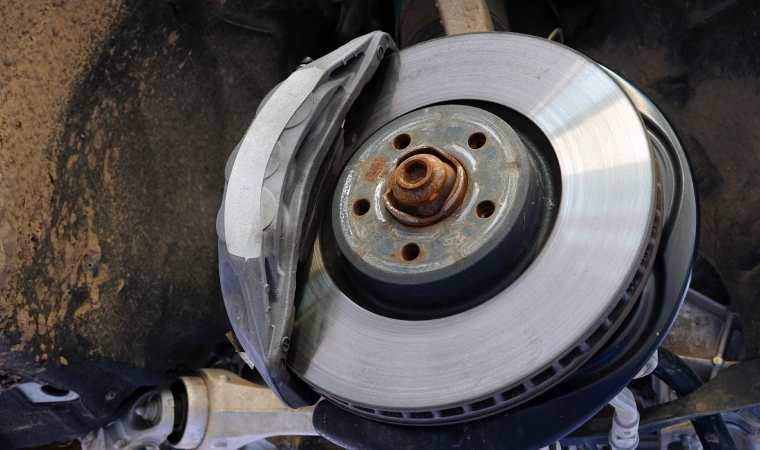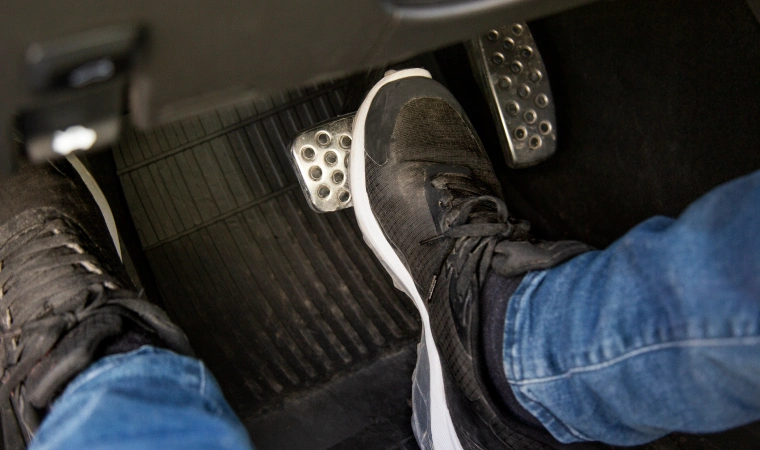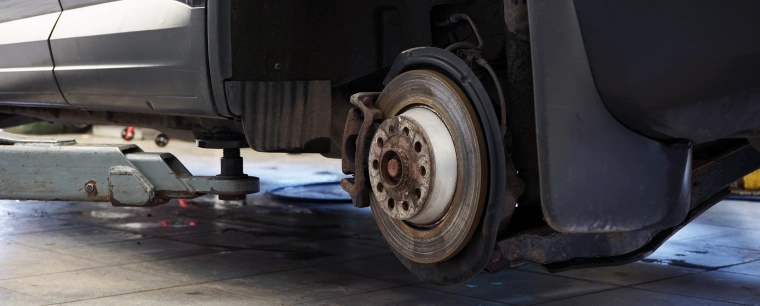Anti-Lock Brakes: What Are They?
Published on: Monday, 17 June 2024 | Author: Jack Dreyer
It's essential to keep up with the continuously advancing safety features of modern vehicles to enhance your driving experience. Among these innovations are Anti-Lock Braking Systems, also known as ABS, which are a key component in preventing accidents and maintaining vehicle control during sudden stops. With ever-increasing road traffic and unpredictable road conditions, knowing how to effectively utilise ABS can significantly impact your driving experience.
Let's explore the mechanics behind ABS, the benefits, and how to make the most of this technology. Whether you're a novice or an experienced driver looking to refresh your knowledge, this blog will give you the insights you need to leverage ABS for safer, more confident driving.
What are anti-lock brakes?
Let’s get down to basics, Anti-Lock Braking Systems (ABS) are advanced safety features integrated into most modern vehicles by preventing the wheels from locking up during sudden or forceful braking, which can be critical in maintaining control and stability, especially at high speeds.
The ABS system works through sensors, positioned close to each wheel, which monitor the wheel's rotation speed. If these sensors detect excessive speed, the system's electronics automatically engage the brakes swiftly and precisely. This is done by intermittently applying and releasing the brakes to prevent wheel lock and maintain vehicle control.
ABS Vs regular brakes
In comparison to conventional braking systems that can cause wheels to lock and hinder vehicle control, the ABS employs sensors to emit rhythmic pulses that prevent wheel lock-up. This technology allows drivers to retain greater control over the vehicle during severe braking scenarios. Studies have shown that vehicles equipped with ABS are 35% less likely to be involved in collisions or accidents compared to vehicles without this system.

The benefits of anti-lock brakes
Anti-lock Braking Systems (ABS) offer several significant advantages over regular braking systems. These advantages showcase ABS as a valuable feature for enhancing vehicle safety, especially in challenging driving conditions.
Improved safety and control
One of the main differences between ABS and regular brakes is that ABS prevents wheel lock-up during emergency braking, allowing drivers to maintain steering control and avoid obstacles, which significantly enhances safety.
Enhanced stability
By modulating brake pressure on each wheel, ABS maintains vehicle stability during sudden stops, helping to prevent skidding and loss of control.
Better performance on varied surfaces
ABS reduces stopping distances on all road conditions, including wet and slippery surfaces, ensuring consistent braking performance.
Compliance and reduced accident risks
Vehicles equipped with ABS meet higher safety standards and adapt well to ever changing regulations and rules on road compliance, leading to a lower risk of accidents and penalties.

ABS warning light meanings
Like the majority of car parts, when something goes wrong in your vehicle, you will be alerted through your dashboard warning system. There are a number of different reasons as to why your ABS warning lights may show, and it's important to check your vehicle handbook to find out which warning light this is and what it means.
If the ABS light shows, it indicates that the anti-lock braking system is not functioning, which could also impact related systems such as stability control and traction control depending on your vehicle's features. It may also affect your vehicle's tyres by resulting in the risk of them getting locked during heavy braking and that limits your manoeuvrability in emergencies. It is important to note however, that although you can drive with your ABS warning light on, you could fail your MOT, and should take your car to get checked as soon as possible.
Maintaining your brakes with Tyre Pros
Want to keep your vehicle in check and think your brakes may need servicing? Head down to your local Tyre Pros centre, to visit our experts for a free brake check. Alternatively, if you have any questions, or are keen to keep up to date with the latest motoring, brakes, and tyre support, check our up to date blogs, or contact your local centre with any questions.




